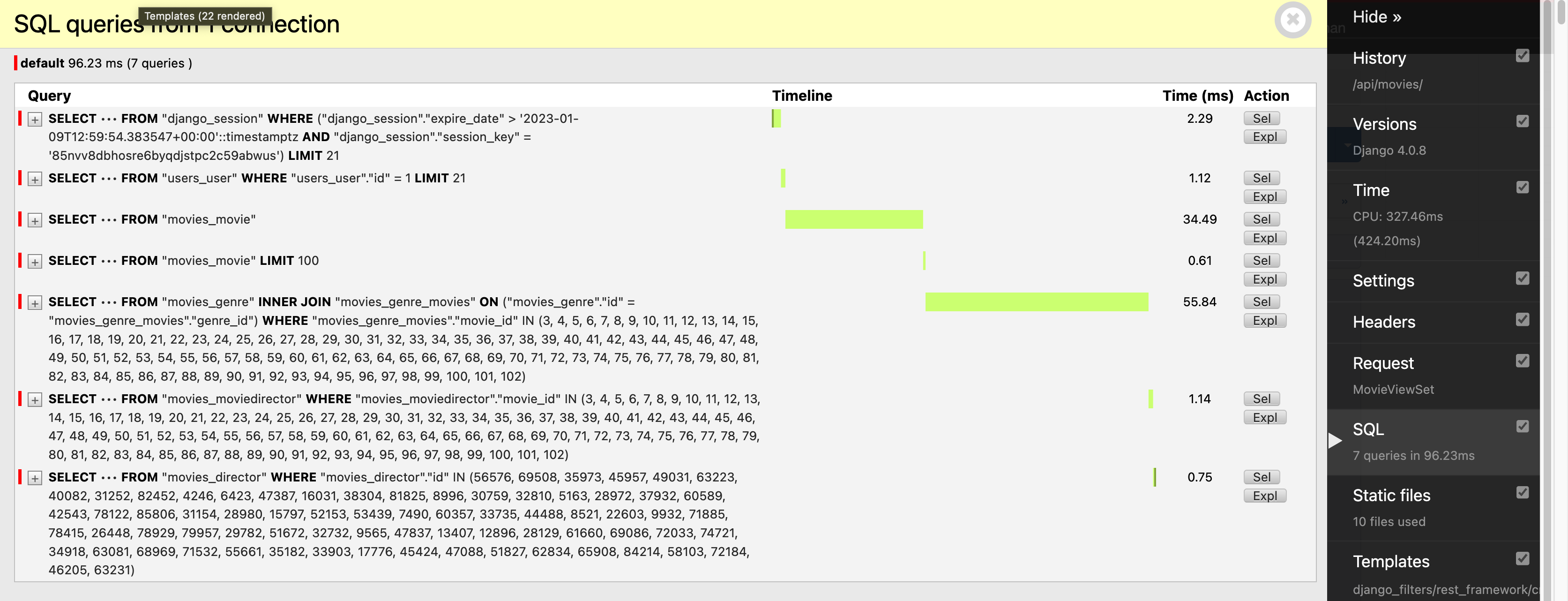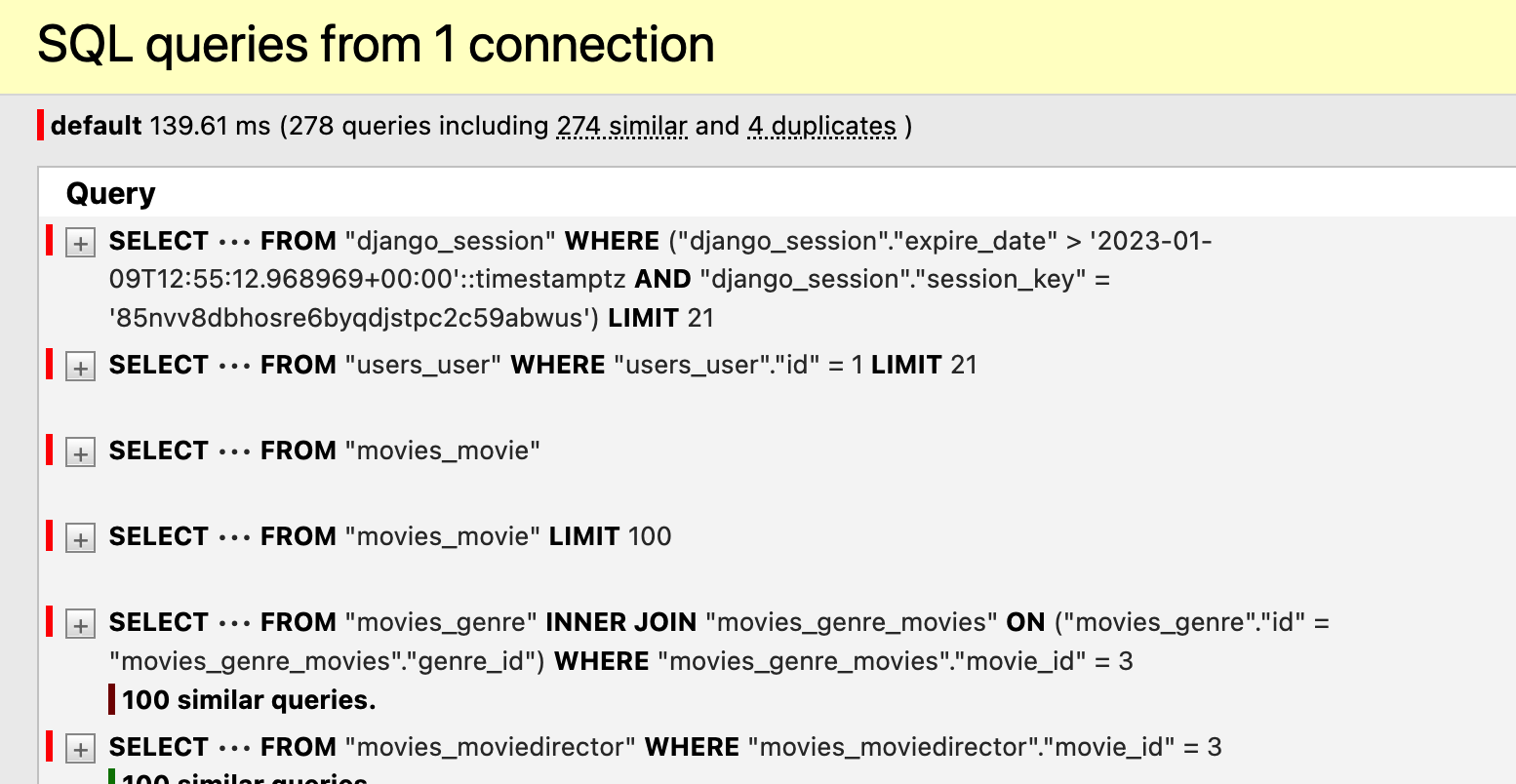main
Universium task project.
To run with docker with local configuration (-f production.yml for production)
docker-compose -f local.yml upTo migrate inside docker and create super user, run
docker-compose -f local.yml run --rm django python manage.py migrate
docker-compose -f local.yml run --rm django python manage.py createsuperuserWith same commands, you can run other django commands. For example importing movie data from csv files.
docker-compose -f local.yml run --rm django python manage.py import_movie_data --data-dir=dataFor running without docker:
- Create virtual env and activate it
- Install requirements
- Run migrations
- Create super user
- Run server
Performance improvements
You will detect certain select_related and prefetch_related in the code. This is done to improve performance of the queries. For example, in the MovieViewSet class, you will see the following code:
class MovieViewSet(viewsets.ModelViewSet):
queryset = Movie.objects.all().select_related("director").prefetch_related("actors")
serializer_class = MovieSerializerThis is done to avoid N+1 queries. For example, if you don't use select_related and prefetch_related, you will see the following queries:
Previously, with duplicate queries (N+1)
After using select_related and prefetch_related

Additional potential improvements
Inside import_movie_data script, I am reading objects from csv and inserting per object
There is a possible improvement to read all the objects from csv and then insert them in bulk. This will reduce the number of queries and will improve the performance.
Additionally, you have probably noticed that I am using get_or_create(). This is done to avoid duplicate objects. For example, if you have a movie with the same name and director, you will not create a new movie. Instead, you will get the existing movie and update the actors.
Well, there is no get_or_create in bulk that comes with django currently, it is probably possible to implement but for this project scope, I don't think it was needed, I just wanted to demonstrate that we can improve things.
If you are sure that you will run import script one time, it could make sense to use bulk create.
License: MIT
Settings
Moved to settings.
Basic Commands
Setting Up Your Users
-
To create a normal user account, just go to Sign Up and fill out the form. Once you submit it, you'll see a "Verify Your E-mail Address" page. Go to your console to see a simulated email verification message. Copy the link into your browser. Now the user's email should be verified and ready to go.
-
To create a superuser account, use this command:
$ python manage.py createsuperuser
For convenience, you can keep your normal user logged in on Chrome and your superuser logged in on Firefox (or similar), so that you can see how the site behaves for both kinds of users.
Type checks
Running type checks with mypy:
$ mypy main
Test coverage
To run the tests, check your test coverage, and generate an HTML coverage report:
$ coverage run -m pytest
$ coverage html
$ open htmlcov/index.html
Running tests with pytest
$ pytest
Live reloading and Sass CSS compilation
Moved to Live reloading and SASS compilation.
Deployment
The following details how to deploy this application.
Docker
See detailed cookiecutter-django Docker documentation.


